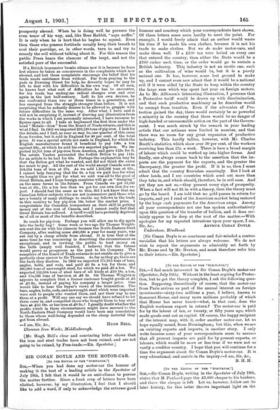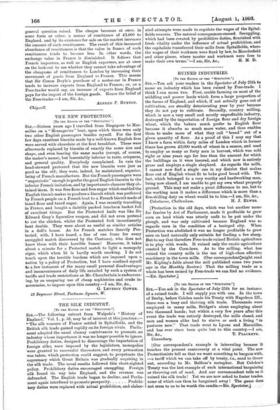[To THE EDITOR OF THE "SPECTATOR."]
SIR,—Sir Conan Doyle, writing in the Spectator of July 18th, states that M. Panhard pays the 2100 cheque to his bankers, and there the cheque is left Let us, however, follow out its later history, for this latter throws important light on the general question raised. The cheque becomes at once, in some form or other, a means of remittance of £1,000 to England, and by its existence for sale on the market increases the amount of such remittances. The result of this increased abundance of remittances is that the value in francs of such remittances tends to become less. In other words, the exchange value in France is diminished. It follows that French importers, as well as English exporters, are at once on the look-out to see whether they cannot take advantage of the cheapness of remittances to London by increasing their movement of goods from England to France. This means that Sir Conan Doyle's purchase of a motor-car in France tends to increase exports from England to France; or, as a Free-trader would say, an increase of exports from England pays for the import of the foreign goods. Hence the belief of the Free-trader.—I am, Sir, &c., ALFRED F. BUXTON. Chigwell.







































 Previous page
Previous page